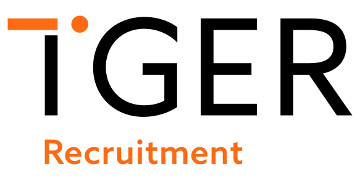The survey results, published yesterday (25 July), showed that 37% of millennial employees (aged 25 to 34) believed they experienced recruitment bias. For Gen Z employees (defined as people aged 16 to 24) the proportion was 36%, the survey of 2,000 employees showed.
Research published by recruitment firm ManpowerGroup last month revealed that 45% of employers struggled to hire and engage Gen Z and millennial workers due to employers' lack of flexible working, lack of career progression opportunities and lack of commitment to sustainability, diversity, equity and inclusion (DEI).
Lee Higgins, founder of DEI jobs network Diverse Talent Networks, told HR magazine that hiring discrimination could be due to stereotypes about young people in the workplace.
He said: “Younger employees may face discrimination during the recruitment process because decision-makers stereotype them as being less committed or serious.
“We’ve all heard, read and seen articles and programmes about Gen Z and quiet quitting; this misconception that the younger generation are snowflakes is sadly heard too often.”
____________________________________________________________________________________________________________
Read more: Employers trying and failing to hire Gen Z
____________________________________________________________________________________________________________
The Applied survey found that, when asked what they thought the reason for discrimination was, Gen Z workers cited age (21%); ethnicity (19%); gender (15%) and hair colour (15%).
Millennials cited accent (21%); ethnicity (21%); gender (20%); class (14%); and height (14%) as the reasons they thought they had been discriminated against.
Older workers were the least likely generation (12%) to report they had faced discrimination during hiring, but 50% of those workers reported that the discrimination they had faced was because of age.
Using anonymised CVs during the hiring process could prevent employers from discriminating against candidates, suggested Khyati Sundaram, Applied's CEO.
Speaking to HR magazine, she said: “The only way to ensure that all candidates, including younger workers, are given an equal chance to succeed is to anonymise applications and use objective skills tests.
“This prevents information such as a candidate's age from triggering biases during the hiring process, and ensures that all applicants are evaluated solely based on their role-relevant skills."
____________________________________________________________________________________________________________
Read more: How can HR support younger workers?
____________________________________________________________________________________________________________
Moving away from more traditional forms of hiring could encourage employers to recruit from more diverse pools of talent, added Higgins.
He continued: “Hiring should also be diverse, not just in terms of visual diversity but also diversity of thought. This will reduce the risk of bias.
“Employers should tear up the traditional application process and instead look at networking as a way to find talent.
“We should be looking into diverse communities for talent rather than through traditional areas.”
Employers can measure whether their recruitment process is inclusive by looking at the diversity in their organisation, recommended Sundaram.
“The best proof of a hiring process's inclusiveness will be its outcome,” she said. “Our research at Applied shows that 60% of hires made following an anonymous, skills-based approach would be missed during traditional CV sifts. In particular, ethnic minority hires can increase by up to 300%.”
The Applied team surveyed 2,000 adults between 6 and 10 June 2024.










